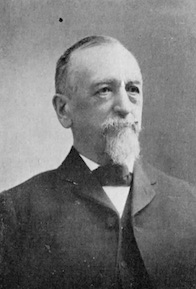Plymouth
Contents
- 1 PLYMOUTH LODGE
- 2 REFERENCES IN GRAND LODGE PROCEEDINGS
- 2.1 ANNIVERSARIES
- 2.2 VISITS BY GRAND MASTER
- 2.3 BY-LAW CHANGES
- 2.4 HISTORY
- 2.5 OTHER
- 2.6 EVENTS
- 2.6.1 OFFICER LIST, DECEMBER 1825
- 2.6.2 CONSTITUTION OF LODGE, SEPTEMBER 1826
- 2.6.3 OFFICIAL VISIT, NOVEMBER 1886
- 2.6.4 INSTALLATION, JANUARY 1891
- 2.6.5 INSTALLATION, JANUARY 1906
- 2.6.6 INSTALLATION, JANUARY 1916
- 2.6.7 GRAND MASTER VISIT, MAY 1916
- 2.6.8 INSTALLATION AND PRESENTATION, APRIL 1917
- 2.6.9 PILGRIM TERCENTENARY, DECEMBER 1920
- 2.6.10 GRAND MASTER VISIT, JUNE 1922
- 2.6.11 CENTENARY CELEBRATION, SEPTEMBER 1925
- 2.6.12 CORNERSTONE CEREMONY, OCTOBER 2004
- 2.7 GRAND LODGE OFFICERS
- 2.8 OTHER BROTHERS
- 2.9 DISTRICTS
- 2.10 LINKS
PLYMOUTH LODGE
Location: Plymouth
Chartered By: John Abbot
Charter Date: 09/14/1825 III-554
Precedence Date: 09/14/1825
Current Status: Active
PAST MASTERS
- Charles May, 1825-1827, 1830-1832, 1852 ©
- Jacob H. Loud, 1828, 1829; SN
- DARK 1833-1851
- Robert B. Hall, 1853-1855, 1863 ©
- James Thurber, 1856 Mem
- John Perkins, 1857, 1858
- Ichabod Shaw, 1859, 1860, 1862
- C.H. Howland, 1861
- William S. Danforth, 1864 ©
- J.K. Hayward, 1865
- Charles H. Rogers, 1866, 1867
- Horace P. Bailey, 1868, 1869
- Josiah C. Fuller, 1870-1872 ©
- Harvey W. Weston, 1873
- Charles I. Litchfield, 1874-1876, 1878-1882 ©
- Horace M. Saunders, 1877 ©
- John W. Churchill, 1883-1885 ©
- Henry H. Litchfield, 1886-1888 ©
- Thomas Diman, 1889-1891
- Clark Ellis, 1892-1894
- Alfred S. Burbank, 1895-1897
- John H. Damon, 1898-1900
- Stephen C. King, 1901, 1902
- Charles H. Sherman, 1903-1905
- Edward L. Burgess, 1906, 1907
- Harvey A. Soule, 1908, 1909; N ©
- William R. Morton, 1910, 1911
- George L. Gooding, 1912, 1913
- Waldo Hayward, 1914, 1915
- Milo C. Dodge, 1916, 1917
- Frank H. Carver, 1918
- Edward C. Holmes, 1919, 1920; N ©
- F. Russell Adams, 1921, 1922
- Henry W. Royal, 1923, 1924; N
- Harold J. Weston, 1925, 1926
- Knowlton B. Holmes, 1927, 1928
- Thomas S. Fogarty, 1929, 1930
- Ralph L. Drew, 1931, 1932
- Harry H. Morton, 1933, 1934
- Frank Jordan, 1935, 1936
- Harrison F. Goddard, 1937, 1938
- Wallace B. Brewster, 1939, 1940
- Raymond E. Miskelly, 1941, 1942; N
- H. Gordan McNeil, 1943, 1944
- Ralph C. Weaver, 1945, 1946 ©
- Eugene S. Holton, 1947, 1948
- Harold W. Baker, 1949-1951; Mem
- Gilbert L. Besse, 1952, 1953
- Warren O. Davis, 1954, 1956
- Norman V. Holmes, 1955
- James A. Leland, 1957, 1958
- William Gault, Jr., 1959
- George E. Randall, 1960
- Harley S. Cadenhead, 1961
- Allen T. Burgess, 1962
- Robert J. Gault, 1963
- Warren L. Harlow, 1964
- Walter R. Roberts, Jr., 1965
- Francis H. Baker, 1966
- Emmett B. Baker, 1967; PDDGM ©
- Arne M. Erickson, 1968
- Daniel B. Drew, 1969, 1970
- George A. Pond, 1971
- James A. Fontaine, 1972
- Leon T. Ashley, 1973; SN
- Donald F. Grassi, 1974
- John C. Vaz, 1975 ©
- Francis C. Rogerson, Jr., 1976
- Allerton J. Bolduc, 1977
- Leo A. Morin, Jr., 1978
- Norman K. Libby, 1979
- Russell W. Nickerson, 1980; PDDGM
- John W. Searles, 1981
- Robert A. Santheson, 1982
- John F. Riley Jr., 1983
- David C. Smart, 1984
- Karl A. Lekberg, 1985
- Wayne L. Books, 1986
- Sumner L. Small, Jr., 1987, 1992
- Thomas E. Mann, 1988, 1989
- Jeffrey L. Moran, 1990, 1991
- John J. Handy, 1993
- Frederic L. Milliken, III, 1994
- James J. Rezendes, 1995
- Jeffrey D. Howe, 1996
- James D. Johnston, 1997
- Jonathan H. Jesse, 1998, 2004
- Stuart G. Pedersen, 1999, 2000
- Kevin D. Morisi, 2001, 2008
- Raymond G. Veins, 2002
- David P.McQuade, 2003 ©
- James J. Bennette, 2005
- D. Butch Machado, 2006, 2007
- Paul C. Malley, 2009-2012
PICTURES FROM LODGE WEB SITE
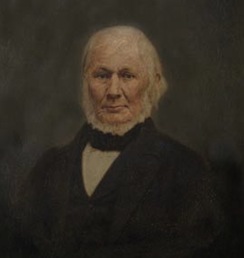 |
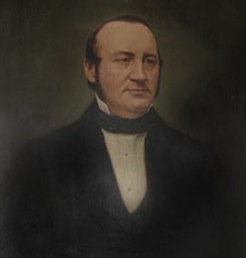 |
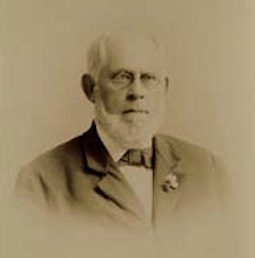 |
|||
| Charles May, 1825-1827, 1830-1832, 1852 | Robert B. Hall, 1853-1855, 1863 | William S. Danforth, 1864 | |||
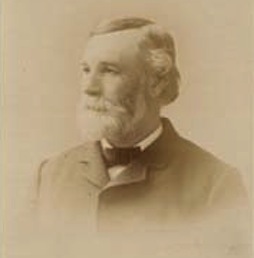 |
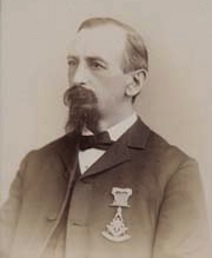 |
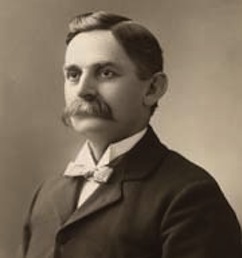 |
|||
| Josiah C. Fuller, 1870-1872 | Charles I. Litchfield, 1874-1876, 1878-1882 | Horace M. Saunders, 1877 | |||
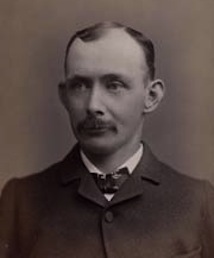 |
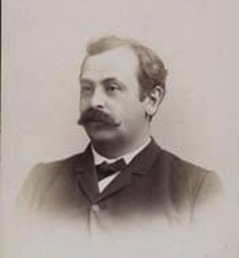 |
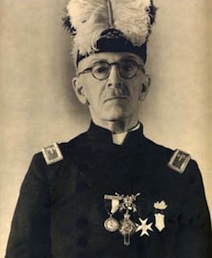 |
|||
| John West Churchill, 1883-1885 | Henry H. Litchfield, 1886-1888 | Harvey A. Soule, 1908, 1909 | |||
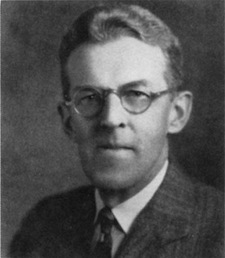 |
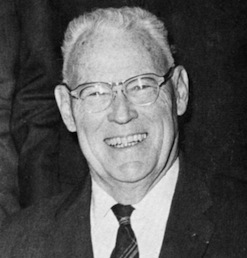 |
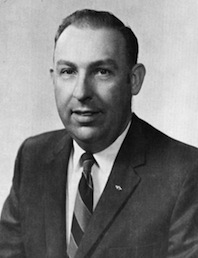 |
|||
| Edward C. Holmes, 1919, 1920 | Ralph C. Weaver, 1945, 1946 | Emmett B. Baker, 1967 | |||
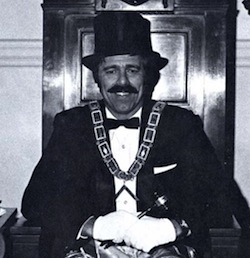 |
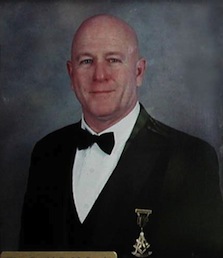 |
||||
| John C. Vaz, 1975 | David P.McQuade, 2003 |
REFERENCES IN GRAND LODGE PROCEEDINGS
ANNIVERSARIES
VISITS BY GRAND MASTER
- 1826 (Acting Grand Master Caleb Butler; Constitution of Lodge and installation; Special Communication)
- 1887 (Endicott)
- 1889 (Endicott; 2 visits, including dedication of the Pilgrim Monument)
- 1902 (Gallagher)
- 1906 (Blake)
- 1916 (M. Johnson; see below)
- 1922 (Prince)
- 1925 (Ferrell; Centenary; Special Communication)
- 1928 (Deputy Grand Master Otis C. White; Hall Dedication; Special Communication)
- 1940 (Perry; reception for Junior Grand Warden Edward C. Holmes)
- 1942 (Schaefer)
- 1975 (Maxwell; 150th Anniversary; Special Communication)
- 1986 (Richardson; Hall dedication; Special Communication)
BY-LAW CHANGES
1870 1871 1872 1881 1889 1909 1911 1912 1921 1925 1930 1936 1947 1956 1957 1967 1968 1976 1982 1996 1998 2006 2007 2012 2014 2018
HISTORY
HISTORY OF FREEMASONRY IN PLYMOUTH, SEPTEMBER 1925
From Proceedings, Page 1925-237:
By Bro. Henry W. Royal.
The history of Plymouth Lodge does not cover the whole story of Freemasonry in Plymouth, and such a history would be incomplete if it did not include some reference to the events which preceded and led up to the founding of Plymouth Lodge.
The earliest suggestion of any connection between Freemasonry and Plymouth goes hack, strangely enough, to a period which antedates the Landing. You will recollect that the original Charter under which the Pilgrims settled in Plymouth was issued to them by the Council for New England. Among the original members of this council were Earl Pembroke, Grand Master of Masons in England at the time the Charter was granted, and Earl Arundel, who became Grand Master in 1633.
Unfortunately for the interest of this story, neither of these men signed the original Charter, which is still preserved in Pilgrim Hall; and there is no evidence that any member of the Pilgrim company was in any way connected with Freemasonry.
M.W. Melvin M. Johnson, in an admirable address delivered before this Lodge at the time of the three hundredth anniversary of the Landing, dwelt at some length upon the similarity which exists between many of the ideas and principles for which the Pilgrims stood and those principles which underlie Freemasonry today. The Pilgrims were strong and positive in their faith, but they laid down no creed; they were tolerant to a degree not known before; they recognized the fraternity of all who kept the faith. Although M. W. Brother Johnson is a recognized authority on Masonic history, he found no evidence that Freemasonry, as such, existed here in the early days of the Pilgrim colony.
The so-called "Masonic stone"' on Burial Hill offers the first evidence of the existence of Masonry in this vicinity. This stone was erected to the memory of Nathaniel Jackson, who died in 1743 and is curiously wrought, the design containing many Masonic emblems. As Mr. Jackson was about seventy years old when the Grand Lodge of Massachusetts was founded, it is hardly likely that lie was made a Mason in this country. It is possible that he was a seafaring man and received his degrees abroad, but all this is mere supposition, and the stone itself is the only evidence of the Masonic standing of the deceased.
Although Plymouth was actively connected with the stirring events which led up to the American Revolution — events in which Masonry played an important part — there seems to have been no move to establish a Lodge here. Indeed it was not until 1801 that such a move was made.
On June 8 of that year, upon petition of Nathaniel Goodwin and others, a Charter was granted establishing Fore Fathers Rock Lodge. Nathaniel Goodwin was born in Plymouth in 1748 and died here in 1819. He built the house on Leyden Street which was later owned and occupied by Brother William H. H. Weston. He was a Major General during the Revolution and served in the army for many years afterwards. He was made a Master Mason in St. Andrew's Lodge, Boston. The names and Masonic history of his associates are not known. Unfortunately the records of this Lodge have been lost and practically all that we know about it is contained in the very brief references to it in the Proceedings of the Grand Lodge.
For some reason not explained in the records the Lodge was not Constituted until October 10, 1805. At that time Isaiah Thomas was Grand Master. The Grand Lodge met at the house of John D. Dunbar, "near Masons' Hall," and then, attended by a band, proceeded to the hall. After the usual formalities, R.W. John D. Dunbar, who was District Deputy Grand Master at the time, was installed Master, "in ample form"; the subordinate officers were then installed in the usual manner.
John Danforth Dunbar, the newly installed Master, was born in Stoughton in 1768 and was without doubt the J. D. Dunbar who was raised in Fayette Lodge. He graduated from Harvard College in 1788 and was a lawyer by profession. He came to Plymouth about 1791 and married Nancie, daughter of William Crombie. She was the sister of Calvin Crombie. who was associated with Dunbar in the early days of Fore Fathers Rock Lodge. An old diploma, dated 1805 and now in possession of Plymouth Lodge, bears the names of John D. Dunbar, Worshipful Master, and Calvin Crombie, Junior Warden. The installation was followed by a banquet, and the Grand .Secretary reports that "no accident occurred to mar or interrupt the harmony."
The official account is amplified somewhat by a traditional one. recorded by Rev. Thomas Weston in some "Reminiscences of Plymouth," which, in manuscript form, have lately been presented to Pilgrim Hall. Mr. Weston's information seems to have come largely from his father, who. as a young man of twenty-one years, had attended the ceremonies in the church, although apparently he was not a member of the Craft.
It appears from this account that liquor flowed rather freely on this occasion and some of the participants converted the "means of refreshment into intemperance and excess." When the procession was passing up Summer Street, Dunbar dropped out and sitting down on the doorstep of what was later known as the Virgin house, shouted with mock gravity. "Go on, you drunken scoundrels, I'll not go any farther with you."
About ten years ago Mr. Arthur Lord discovered another account of the Constitution of the Lodge, written on the blank pages of Sir Edward Coke's book on Special Pleadings. This account, at first apparently serious, soon becomes burlesque, yet it tells a story all its own and forecasts to some extent the events which followed. Tt also adds several names to the very short list of those who are known to have belonged to the Lodge.
After giving a list of the Grand Officers present, the report continues, "The procession moved at 12 o'clock to the shop of Stephen Bartlett, Grand Dram Dealer, led by Isaac Bosworth, Grand Sword Bearer, Ephraim Morton and Stephen Bartlett, Grand Wardens, and R. W. John D. Dunbar, Master of said lodge and District Deputy Grand Master for the Third District of the Commonwealth of Massachusetts.
"To perpetuate so splendid and magnificent proceedings this record is made by direction of the shade of Sir Edward Coke."
"'Tis love, pure love, cements the whole,
Love of the bottle and the bowl."
This account connects Isaac Bosworth, Stephen Bartlett, and Ephraim Morton with the Lodge. Nothing more is known of the first two. but Ephraim Morton appears later as one of the Charter members of Plymouth Lodge, and its first Junior Warden.
Love of the bottle and the bowl seems to have been the besetting sin of Fore Fathers Rock Lodge, and the brief record we have of its short and checkered career is largely the story of its troubles with the Grand Lodge. The particular charge against the Lodge was that it failed to pay its dues to the Grand Lodge. In 1821 the situation had become acute; the Lodge was ten years behind in its dues, and its Charter was revoked. It should be noted, however, that the trouble was not peculiar to Fore Fathers Rock Lodge, as Masonry seems to have been at a low ebb throughout the Third District.
There were at that time eight Lodges in the district, and from the report of the Grand Lodge tor 1820 it appears that two of the Lodges were far in arrears in their dues; one had been "unfortunate" in its officers but had now been raised to "a respectable Standing" (though still behind in its dues) ; the other five were "well conducted." but their total funds did not exceed one hundred and seventy-five dollars. With the passing of Pore Fathers Rock Lodge the first chapter of the story of Freemasonry in Plymouth closed somewhat ingloriously.
There was no Masonic organization in Plymouth from 1821 to 1825. On August 21 of the year last named, William M. Jackson and fifteen other resident Masons petitioned the Grand Lodge for a Charter for a new Lodge by the name of Plymouth Lodge. Of the signers of this petition, three were raised in Corner Stone Lodge, one in United Lodge of Brunswick, Maine, and one in Washington Lodge, of New York. There is nothing in the records to show where the remaining signers were raised, but it is probable that most of them had been members of Fore Fathers' Rock Lodge.
The Charter was granted September 14, 1825, and the first meeting was held on the 19th in Masons' Hall, nine members being present. Charles May was Master, Ephraim Morton. Senior Warden, and John Tribble, Junior Warden. It was voted to borrow two hundred dollars to procure and prepare a hall. I have been unable to locate Masons' Hall. In the records of the Grand Lodge, John D. Dunbar's house is said to have been near Masons' flail, and we know that Dunbar lived on Summer Street.
The hall procured under the vote passed at this meeting ■was probably Turner's Hall, situated at the foot of Leyden Street, on the site of the electric light station, for at a later meeting it was voted "to settle with Captain Turner for the use of his hall. The second and third meetings were held on September 27 and October 7. respectively, and were opened on the Entered Apprentice degree; the fourth meeting was held October 24. also on the first degree, and the tirst petitions for the degrees were received.
At this time business was carried on without regard to the degree upon which the Lodge was open. In many cases a Lodge of Entered Apprentices was opened; if no business was brought before it. it was closed and a Lodge of Fellow Crafts opened; this in turn was closed and a Lodge of Master Masons opened. The work of the evening was then concluded on this degree. Applications for admission were laid over for one month, but after a candidate had been accepted he was given his degrees at the pleasure of the Lodge and was not required to wait a month between degrees as is now the rule. At the meeting of February 20. 1826, in order to confer all the degrees upon William Paty at one time, it was voted "to dispense with any article in the by-laws restricting the initiating, crafting and raising of a candidate the same evening." On March 2. without any preliminary vote, Zaben Olney received his first and second degrees, while Isaac Austin was given his second and third.
At a special meeting held February 27, 1826, the Committee on By-laws reported, and it was voted to refer the By-laws to John Thomas and James Thurber for '"revision and transcription." These By-laws are exceedingly interesting and are worthy of more than passing notice.
- Chapter 3 deals with membership and provides in Article 4 that any member who shall absent himself from the Lodge for one whole year shall be considered as having relinquished his membership, "unless he can give satisfactory reason for the same." The effect of such a regulation upon present-day membership can be readily imagined.
- Chapter 6 takes up general regulations. Article 2 provides that every Brother while speaking shall stand and address the Master, and whoever shall interrupt him shall be called to order by the Master. Recognizing, however, that the Master might be confronted by some such situation as that which confronts Vice-President Dawes today, the article goes on to say that no Brother shall speak more than twice on the same subject, and adds somewhat ingenuously, "when the Master calls to order there shall be profound silence." Article 7 provides that no Brother shall smoke tobacco in the Lodge when it is open; Article 8. that no Brother or visitor shall be admitted into the Lodge "if he be in any degree intoxicated," and Article 11 continues the good work by stipulating that no "refreshments" shall be brought into the Lodge on any occasion whatever. Article 12 deals with the stranger within the gates and attempts to make him an asset instead of a liability by providing that "if he be a resident of Plymouth he shall pay the secretary twenty-five cents for each visit." These Bylaws were signed by the first forty-four members of the Lodge.
At the meeting of the Lodge held April 17, 1826, it was voted to hold, the meetings of the Lodge in Pilgrim Hall, a committee having reported that this hall could he secured for twenty-four dollars per year.
After working under Dispensation for one year in accordance with the usual practice, the Lodge was formally Constituted on September 6, 1826, by Most Worshipful Caleb Butler, Grand Master of Masons in Massachusetts. (Note: Bro. Butler was in that year Deputy Grand Master for John Soley; he was therefore only Acting Grand Master.) At eleven o'clock in the forenoon the Brethren accompanied by the Brigade Band, of Boston, proceeded to the old church then located on the site of the present First Church, where the Lodge was Constituted and its officers installed.
The following officers were installed:
- Wor. Charles May, Master
- Wor. William M. Jackson, Senior Warden
- Wor. John Tribble , Junior Warden
- Bro. Daniel Jackson, Jr., Treasurer
- Bro. James Thurber, Secretary
- Bro. Isaac L. Hedge, Senior Deacon
- Bro. John Thomas, Junior Deacon
- Bro. Finney Leach, Senior Steward
- Bro. Thomas Bartlett, Junior Steward
- Bro. James H. Bugbee, Chaplain
- Bro. Samuel Doten, Marshal
- Bro. Lemuel Brown, Tyler.
It is interesting to note that this meeting was opened and the business conducted on the Entered Apprentice degree.
The new Lodge was now fairly started and all seemed to he prospering. Although it had been founded upon the wreck of its predecessor it had inherited none of the disabilities of that unfortunate organization. Its sponsors were men of high standing in the community ami there is every indication from the records that it held fast to the Ancient Landmarks and that its work was carried on with efficiency and dignity.
For the next two years all went well; then the Lodge, through no fault of its own. was engulfed in a storm which threatened its very existence. A few clays after the Constitution of Plymouth Lodge, William Morgan, of Batavia, N. Y.. a man of doubtful Masonic, antecedents. disappeared. The event caused much excitement, and as he was about to publish a book exposing the secrets of Freemasonry it was claimed that he had been carried off by Masons, murdered, and thrown into the Niagara River. All sorts of wild and improbable rumors gained credence and Freemasonry was bitterly assailed on every side. What became of Morgan has never been definitely determined. Several bodies were identified as his, and four members of the Craft were tried for his murder. They were convicted of minor offenses, but were acquitted of the main charge for want of evidence that a murder had been committed.
When the embers of intolerance and hatred showed signs of dying out they were fanned into flames by unscrupulous politicians, and the Anti-Masonic sentiment crystallized into an Anti-Masonic party. This spread rapidly through the North and West and gained some foothold in the South. One of its primary objects was to drive Masons out of public office. The Institution itself was viciously attacked; its secrets were revealed, and its ritual published. That Freemasonry stood the shock is evidence of the enduring principles upon which it is founded, and furnishes convincing proof of the groundlessness of the charges against it.
Plymouth Lodge was scarcely two years old when the storm broke. We read in the records that on October 28, 1828, "the Brethren assembled at the door of Masons' Hall {presumably Pilgrim Hall} but the key being mislaid it was considered advisable to adjourn to Monday next, at Captain Turner's Hall." The Brethren met agreeably to this adjournment and voted to hire Captain Turner's Hal! until some more suitable place could be secured. There is nothing in the records to show whether there was any discussion, or why the change was made from Pilgrim Hall, but the subsequent happenings give abundant ground for the suspicion that the "mislaying" of the key marked the beginning of active Anti-Masonic sentiment in Plymouth.
From this time on interest in Masonry waned rapidly, and the Anti-Masonic feeling became so strong as to interfere seriously with the working of the Lodge. The diminishing attendance is indicated by the action of the Lodge at a meeting held March 16, 1829, when it was voted to sell four of the armchairs and to dispose of all but four dozen of the glass lamps. About this time, too, the dues were reduced to one dollar per year. No attempt was made to hold any except the regular meetings and finally there was not sufficient interest to make even these possible. There were two meetings in 1831, one in 1832, and one in 1833. The Anti-Masonic agitation had now reached its height; at the presidential election of the previous year the Anti-Masonic party had polled more than one hundred and fifty thousand votes in New York and had actually carried the state of Vermont. Plymouth Lodge accepted the inevitable, and at a meeting of the "late members," held November 25, 1833. the following resolutions were adopted:
- Whereas, the meetings of this Lodge have for a long time been discontinued, and the interest which has heretofore been manifested in them has wholly ceased, and
- Whereas, a large portion of our citizens (of all parties both in religion and politics) who are not members of the Masonic Institution entertain jealousies and opinions unfavorable to it, and it having in our opinion ceased to be useful,
- Therefore Resolved, That the Charter of this Lodge be surrendered and returned to the Grand Lodge of this state.
It was also voted at the time that a committee.be appointed to dispose of the property and pay all just demands against the Lodge. On July 7. 1835, this committee met, apparently for the last time, and voted that the money remaining in its hands after the debts of the Lodge had been paid should be deposited in the bank, "subject to the order of a majority of the committee, the estimated sum being about twenty-seven dollars."
Thus, for the second time, organized Freemasonry ceased to exist in Plymouth.
The Anti-Masonic movement came to an end, politically, with the election of Andrew Jackson, and died out entirely within the next few years.
In 1851, eighteen years after its surrender, the Charter of Plymouth Lodge was returned, upon petition of the required number of the original members. The first meeting was held in Adelphian Hall on November 24, of that year, the following Brethren being present: Charles May, James Thurber, Zaben Olney, George W. Virgin, Robert B. Hall, Ichabod Shaw, James Cox, and Leander Lovell. James Cox was called to the chair and James Thurber was chosen Secretary. It was voted that the bydaws of the former Lodge should be adopted for the government of the Lodge until otherwise ordered. The Lodge then proceeded to elect the following officers:
- Charles May, Worshipful Master
- Robert B. Hall, Senior Warden
- George W. Virgin, Junior Warden
- Ichabod Shaw, Treasurer
- James Thurber, Secretary
- Leander Lovell, Senior Deacon
- Zaben Olney, Junior Deacon
- James Cox, Tyler
Adelphian Hall, in which this meeting was held, belonged to the Odd Fellows and was located on High Street. The Lodge continued to meet here until 1855, when it moved for about a year into Payne Hall, on Middle Street, In 1856 it moved into Davis Hall, which it occupied until 1862. At a meeting held in November of that year it was voted to hire Union Hall for a period of five years. This brings my story nearer home, as Union Hall was the room which we now occupy. At the expiration of Its lease the Lodge voted to buy the building, and has occupied it ever since.
The history of Plymouth Lodge has been singularly uneventful since its reorganization in 1851. Prosperity did not come at once; the road led up-hill for many years and the final success of the Lodge was the result of patient labor and real devotion on the part of those who undertook the task of keeping Freemasonry alive in Plymouth. As late as 1861 the District Deputy described the .situation in Plymouth as discouraging, but this condition seems to have been only temporary. During the years which followed the Lodge gained a firm foothold in the community and established a reputation for strength and efficiency. We who succeeded that generation had set for us standards of efficiency and loyalty which have called for our best efforts.
The regular meeting of .June 17. 1861 is worthy of special notice, as no one but the Secretary was present. The situation was an unusual one. but the Secretary seems to have been equal to the emergency. He makes no reference to the reason for the small attendance, but reports simply that he "adjourned to September 16." Surely the advantages of having an efficient Secretary cannot be overestimated!
On September 7. 1865, there occurred an event of particular interest to us here to-night, for at that meeting James B. Collingwood was made a Mason in Plymouth Lodge. Brother Collingwood is still a member of this Lodge and is therefore the connecting link between the past and present, between the Plymouth Lodge of yesterday and that of today. With the exception of three years when he acted as Secretary he has never held office in the Lodge, hut he has kept up an active interest in Masonry and for more than sixty years has been a regular attendant at the meetings.
lie was followed within the next twelve years by Brothers Horace II. Saunders. Edmund K. Burbeck, Lewis H. Keith. Henry M. Litchfield, and Alfred M. Shaw, all of whom have been members of Plymouth Lodge for more than fifty years.
This completes the history of the Lodge for the first fifty years and brings the story down to a time which is well within the memory of many who are here to-night. 1 shall therefore close with a brief reference to some of the men who have been prominent in the affairs of the Lodge. Lack of time makes it possible to mention only a few, and those very briefly.
Charles May was born in Plymouth in 1791. When about twenty-one years of age he removed to Brunswick, Maine, and while living there received his degrees in Masonry in United Lodge. Not long after his return to his native town Plymouth Lodge was organized, and he was appointed its first Master, a position which he held, with the exception of two years, until 1832. He served the Lodge during the dark days of the Anti-Masonic agitation, and in 1833, when the organization had been allowed to lapse, he was chairman of the informal meeting at which it was voted to surrender the Charter.
In 1851, nearly twenty years later, he was one of those who petitioned to have the Charter returned, and he was again elected Master. He served one year and then declined reelection. From this time on he took no active part in the work of the Lodge, but he was an honored guest at the celebration of the fiftieth anniversary in 1875. His work was closely bound up with the beginnings of Plymouth Lodge and probably no one man did more towards putting it upon an enduring basis.
Charles H. Rogers was made a Master Mason in this Lodge in October, 1863. In November of the same year he was elected Junior Deacon; one year later he was made Senior Deacon. He perfected himself in the ritual at an early stage of his Masonic career and soon after his election as Senior Deacon he appears on the records as "acting Master." hi this capacity he seems to have had charge of most of the degree work during the year. The following year he was chosen Master, in which office he served two years. He had a thorough knowledge of the ritual and it was from him that many of the later Masters gained that correctness of ritual which has characterized the work of Plymouth Lodge through all the succeeding years. In 1871 he was elected Secretary of the Lodge and served in this office for the remainder of his life, a period of more than twenty years. His work as Secretary is in strong contrast to that of his predecessors. The early records are brief and inadequate, often incomplete. Important matters were so well known to all that they were frequently mentioned only incidentally, and sometimes omitted entirely. Brother Rogers, however, set forth the doings of the Lodge in detail, and his records have served as models for succeeding secretaries.
Josiah C. Fuller received his Master Mason's degree in this Lodge in July, 1864. In November of the same year he was appointed Senior Steward, but in. the records he appears frequently as "acting Junior Warden." He served one year as Senior Deacon, one year as .Junior Warden, and one as Senior Warden. He was then elected Master and served for two years. He was forcible and aggressive in his conduct of the Lodge; he was a strict disciplinarian, and he exacted from his officers a full measure of efficiency. Later, he served several years as Treasurer. While his term of service was not long, his vigorous personality left a lasting impression upon the Lodge.
Charles T. Litchfield was raised in this Lodge in 1870. Three years later he was chosen Master. He served for three years, and after an interval of one year, for five years more. His term of service exceeds that of any other Master of the Lodge. He was District Deputy Grand Master for the Twenty-fifth District in 1886 and 1887 and Senior Grand Warden of the Grand Lodge in 1892. His work was characterized throughout by efficiency and dignity, and his devotion to Plymouth Lodge will long be remembered.
Of the living Past Masters. I shall speak of only one - Wor. John West Churchill. He was made a Master Mason in December, 1875. One year later he was elected Junior Deacon. He served in various offices in the line until he was elected Master. After occupying the chair for three years he spent one year out of office, hut in December, 1886, he was elected Treasurer. lie continued to serve as Treasurer for more than thirty years, when ill health compelled him to retire. Wor. Bro. Churchill's active Masonic life covered a period of forty-five years, forty-three of which he served as an officer. In December of the present year he will complete his fiftieth year as a Mason.
I have mentioned these men. not because their services were conspicuously greater than those of others, but because they are typical of the men who were the makers of Plymouth Lodge.
As we stand to-night on the threshold of another hundred years the situation is such that we look back with pride and forward with confidence. Our Lodge is well-managed, efficient, and strong. Freemasonry as an Institution commands universal respect and admiration. While it is neither a religious body nor a political party it is recognized as one of the strongholds of our democracy and of our religious faith. The problems which confront us Today are serious ones and Freemasonry can do much toward their solution.
But let us not make the mistake of thinking that these questions can be settled in the Lodges, or that the Lodges as such should take it upon themselves to shape public policies, to right public wrongs, or to settle private controversies. Let it rather be their aim to maintain the excellent tenets of our profession, to uphold the Bible as the rule and guide of our conduct as well as of our faith, and to develop an enlightened citizenry, which shall be mindful of its obligations and faithful to its trust.
Then, in truth, shall Freemasonry come into its own and stand in the midst of our national life as a tower of Strength, a city whose builder and maker is God.
ANNIVERSARY POEM
By Bro. Walter Ashmore Knight.
The Pilgrim's voice is hushed, he lies at rest
On yonder hill, 'neath stones of ancient hue.
The ashler rough his Pilgrim feet once pressed
Is still a shrine to all whose hearts beat true.
Upon the tombs of some who slumber there.
Rude carved by loving hands, long since at rest,
The hour-glass, the compasses and square
The age of Pilgrim Masonry attest.
They founded Plymouth Lodge—the century hand
No shadow casts upon its dial vast—
A shrine e'en worthy of the Pilgrim band.
First bulwark of the Pilgrim faith, and last.
They wrought the ancient Temple to restore;
They strove with all the ancient builders' art
That peace and love might dwell forever more
Within the temple of the human heart.
We greet you, friends, who on this happy day
Are Pilgrims to this century-aged shrine.
Your happy smiles and happy voices gay,
As happy hearts and hands with ours entwine.
Will keep the memory of this moment bright
When all the pomp and glory shall depart.
And thoughts of those now but a vanished light
Tug at the inner recess of the heart.
For some we knew and loved the best of all.
Who freely gave of life and light and love,
Have answered "ready" to the Master's call
And crossed the threshold of the Lodge above.
Ah! could our eyes but see beyond the veil,
Our ears but listen to the unseen choir,
The unseen guest might here to-day prevail
O'er those still pregnant with the living fire.
We greet them too; who knows how brief the years
Ere we too follow in the paths they've trod;
Their light seen dimly through a mist of tears
May guide our footsteps upwards unto God.
So when the summons from the Lodge to be
Shall come to as from yonder shining star
And proffer to our souls the last degree
The Master can confer—'twill not seem far.
Close, Angel of the perfect Lodge above,
Recorder of the hopes and joys and tears
Of all the Brethren of the Master's love,
Thy records of this latest hundred years.
Turn back the glass; the swiftly falling sands
Another century's countless hours must run
And bring to us from lately folded hands
New duties by those folded hands begun.
We must not fail, the great All-Seeing Eye
That guards their sleep will guard our waking hours
And give us strength to bear the torch on high,
Inspired by incense from the century flowers.
150TH ANNIVERSARY HISTORY, APRIL 1975
From Proceedings, Page 1975-53:
From 1925 to 1975.
(For a detailed history of Plymouth Lodge for the period from 1825 to 1925, refer to 1925 Mass. 237-257.)
The fifty years of Plymouth Lodge since its 100th Anniversary in 1925 have been full and uninterrupted. The business of the Lodge has been conducted in an efficient manner and the ritual has been excellent and second to none. The standards set by the Past Masters have been high and nothing has been lost with the passing of the years.
Shortly after the 100th anniversary, it was decided that the rooms on Main Street had outlived their usefulness and that larger and better quarters were desirable. It is to be assumed that the confining quarters must have been a major subject of discussion as the decision to move was made without opposition. At the meeting on September 28, 1925, Right Worshipful Edward C. Holmes reported for the building committee concerning the purchase of property. At the meeting of May 23, 1926, it was finally voted to purchase the Bradley property on Court Street, next to Memorial Hall, for $18,000. This consisted of a fine old, two story dwelling on an appropriate lot. This is the present site of the Plymouth Masonic Temple. Other lots on Middle, Brewster and Howland Streets had been considered.
At the same meeting, it was voted to sell the old building on the corner of Main and Middle Streets and rent the Lodge Room until a new building was ready. The old building was sold to Brother Louis Rubenstein of Plymouth for $40,000, the Lodge taking a second mortgage of $10,000 at 7%. Rent was $400. per year.
In June 1926, Brother Walter Bent, head carpenter at the Plymouth Cordage, brought to the Lodge for consideration plans prepared for the alteration of the Bradley building to suit Lodge needs. Those plans kept three of the four apartments in the building unchanged and added a brick addition of about 45 feet by 65 feet at the back. A cost estimate was made by March 1927 and a letter to Lodge members outlined the plan to raise $40,000 by non-interest bearing scrip. That amount was raised by the end of June and a building committee, consisting of the Master, the Trustees and two brothers was formed. The bids received for the alteration and new construction were all higher than expected with the minimum bid about $75,000. The scrip fund plus available cash, was sufficient to start the project.
The finished Temple had three apartments for rent in the front part, two on the second floor and one to the left of the entrance. There were social rooms on the first floor including a billiard room and a lounge. The Lodge chamber was in the brick addition in the rear with the banquet hall and kitchen in the basement. A new heating system was installed. The order of Eastern Star provided an organ and officers and members paid for the necessary-new Lodge furniture.
The total cost of the new Temple is shown in Lodge records as follows:
- Original cost of property: $18,000
- Construction: 76,561
- Furniture and fixtures: 8.854
- Total: $103,415
On October 7, 1927, a Lodge of Master Masons was opened in form under dispensation from the Grand Lodge. The Brethren, forming a procession, then marched to the building site where Right Worshipful Benjamin F. Arrington, Deputy Grand Master, acting for the Grand Master, laid the cornerstone of the new Temple. (1927 Mass. 253-262)
The items included in the cornerstone were — Holy Bible, Square and Compasses, Constitution and Regulations of the Grand Lodge of Massachusetts, list of officers for 1927, Copy of Charter, By-Laws and a list of Masters and Wardens of the Lodge since 1825. Many other papers were included also. The last regular meeting in the old lodge room was held on July 2, 1928. It is of interest to note that Worshipful Ralph C. Weaver and Brother Allen D. Russell were raised that evening.
A Special Communication was held on September 17, 1928 at which the New Temple was dedicated by Right Worshipful Otis C. White, Acting Grand Master, with a suite of twenty. (1928 Mass. 263-269) One hundred sixty-four members and sixty guests were present and all are listed by name in the records of that meeting. Worshipful Seth Sprague, on behalf of Old Colony Lodge presented the Lodge with an ivory gavel. It was a happy memorable occasion in the history of Plymouth Lodge. Very likely, there are some present at this anniversary celebration who remember that Masonic milestone.
In December 1928 and again in April 1930, a suggestion was made that the term of officers should be for one year only. But, a vote of the Lodge on April 7, 1930 defeated a motion for such a change, a motion made because some thought "there was a lack of interest in Lodge work". The traditional two year term continued until 1959 when the Lodge finally voted to go to the one year term.
Previous to 1932, it was the custom for the Secretary to record each member and visitor present by name. In January 1932, the change was made to simply record the number present. This greatly reduced the recording work for the Secretary.
In 1931, Worshipful Ralph L. Drew appointed an entertainment committee with Brother Raymond E. Miskelly, then the Inside Sentinel, as chairman to carry out a program of social activities for Lodge members and their families. The purpose was to promote greater fellowship in the Lodge and, in that way, encourage more interest in Lodge work.
Over a two year period, the program included ladies nights, dinners, card parties and entertainments by professional artists. To finance the various functions without using Lodge funds, a group of Lodge members, independent of the Lodge, sponsored an illustrated lecture by Admiral Richard E. Byrd, who had recently returned from "Little America" in the Antarctic. The lecture was attended by more than 2300 townspeople and was most successful socially and financially. The profit, after paying the many expenses incurred, amounted to nearly $500. Of this amount $100 was turned over to the Lodge, the balance being used for the entertainment activities. The program was indeed successful.
Worshipful Brother Drew was an excellent ritualist with a strong and dignified delivery. His work, along with a good line of officers, and the success of the social activities, made for an outstanding two years in the history of Plymouth Lodge.
In 1933, Worshipful Harry H. Morton and Worshipful Fred M. Potter of Paskamansett Lodge of New Bedford arranged for exchange fraternal visitations. The first was by Paskamansett Lodge to Plymouth Lodge on April 17, 1933. Worshipful Brother Potter and his officers worked the Entered Apprentice Degree on Clyfton Howard Gardner. Of the Plymouth Lodge officers on that evening, only Right Worshipful Raymond E. Miskelly is still living as of this writing. Except for the war years, — 1941 to 1946 — the exchange visits with Paskamansett Lodge have continued every year since 1933 and have been much enjoyed by both Lodges.
Other exchange visits were made in the thirties, the most notable being those with Nestell Lodge No. 37 of Providence, Rhode Island under special dispensation from the Grand Lodges of Massachusetts and Rhode Island. The first of the several visits was made on June 14, 1934. Plymouth Lodge accepted the invitation of Worshipful Brother Schofield to visit Nestell Lodge, which worked the Third Degree on Francis Elmer Le Baron.
Over the years, there have been many exchange visits with Old Colony Lodge of Hingham, Corner Stone Lodge of Duxbury and May Flower Lodge of Middleboro. All such visits have been most pleasurable and have promoted good fellowship between the Lodges participating.
A very special meeting was held on January 22, 1940 when the Grand Lodge honored Plymouth Lodge with a visit. After a banquet provided by the Eastern Star, Most Worshipful Joseph Earl Perry assumed the East of Plymouth Lodge and introduced the seventeen members of his suite. After remarks by the Grand Master, the following spoke briefly — Right Worshipful Samuel Wragg, Deputy Grand Master; Right Worshipful Brother Miles, Senior Grand Warden; Right Worshipful Brother Winsor, Past Senior Grand Warden; Right Worshipful Irving Botting, Past Senior Grand Warden ; Worshipful George Emery Green, Grand Lecturer and Right Worshipful Brother Reed, District Deputy Grand Master of the 27th District. Worshipful Alfred S. Burbank, Worshipful Charles B. Worrick of Old Colony Lodge and Right Worshipful Edward C. Holmes were then escorted to the East. The Grand Master presented Worshipful Brother Burbank with a Veteran's Medal, Right Worshipful Brother Holmes with a Henry Price Medal and Right Worshipful Brother Worrick with the Joseph Warren Distinguished Service Medal. He stated that it was the first time the three medals had been presented at the same occasion.
Right Worshipful Henry Royal then presented Right Worshipful Brother Holmes a Junior Grand Warden's Jewel on behalf of the members of Plymouth Lodge. Right Worshipful Brother Holmes responded briefly and appropriately, thanking the Grand Lodge and the members of Plymouth Lodge for the honors which had been conferred upon him. Plymouth Lodge was then closed by the Grand Master in ample form.
On April 15, 1940, another unusual occasion took place. Worshipful Winthrop P. Mann, the Master of Alfred Baylies Lodge of Taunton, visited Plymouth Lodge with twenty officers and members of his Lodge for the purpose of presenting a diploma which had been issued to Brother Bartlett Ellis in 1827 by Plymouth Lodge. Worshipful Frank H. Carver, Past Master of Plymouth Lodge, received the diploma with thanks and gave a short history of his great-grandfather, Brother Ellis. He presented the Lodge a picture of Brother Ellis, which with his diploma and his apron are fitting mementos of the first Mason to be Entered, Crafted and Raised in Plymouth Lodge.
January 22, 1942 found the Grand Lodge again at Plymouth for the purpose of conducting a District meeting for men in military service. Worshipful Raymond E. Miskelly welcomed Most Worshipful Albert A. Schaefer and his suite of twelve to Plymouth Lodge, assembled in Harris Hall of the Plymouth Cordage Co., which was by special dispensation, fitted out as a Lodge room. About 242 members and guests, including 80 Service men from Camp Otis, then enjoyed a banquet which was followed by a long social evening. The Overseas Lodge quartet of Providence, Rhode Island sang a number of selections. There were brief addresses by the Grand Master, Right Worshipful Frederick W. Hale, Senior Grand Warden and Right Worshipful Winthrop J. Cushing, Deputy Grand Master. Joe Tobin of Radio Station WESX put on a "Quiz Show" and Col. Edwin H. Cooper, D. S. C., photographer of the 26th Division, showed color movies taken recently in England entitled "Behind the Scenes in England". A Lodge of Master Masons was closed without form at 12:10 A.M. The entire evening was thoroughly enjoyed by the service men and all others present and was a great success.
As might be expected, there was some lessening of Masonic activity during the War years — 1940 to 1945. The attention of people everywhere was directed in varying degrees more to the war effort and less to social and fraternal organizations. Gasoline rationing put restrictions on the use of automobiles. This lowered the attendance at Lodge meetings and limited fraternal visitations and service activities.
Plymouth Lodge was affected as were many other Lodges. Attendance at meetings was down and there was a reduction in the number of applications. Certainly, those were thoughtful and difficult times. Nevertheless, the Lodge continued with the usual schedule of monthly communications and carried on as many service activities as the conditions permitted.
Some members of Plymouth Lodge were in the Armed Forces of the United States during World War II, just as there were in World War I and in the war in Korea. But no accurate record has been kept of those members. While the names of some are known, they will not be listed here for obvious reasons. Plymouth Lodge cooperated fully with the Grand Lodge during the war years in its Masonic Military Service program. In 1941, the Grand Master asked for contributions of fifty cents per member to raise a fund for Masonic contacts with Masons in the Armed Forces. Plymouth Lodge quickly sent in its full quota to the Grand Lodge.
In 1944, the Grand Lodge conducted a campaign to raise more funds for Masonic Military Service Activities for service to the Armed Forces of the United States. The campaign ended on July 4, 1944 and was a great success. Plymouth Lodge contributed $1,234 which exceeded its quota. On October 16, 1944, Right Worshipful Brother Miskelly, on behalf of the Grand Master, presented a "Certificate of Patriotic Masonic Merit" to the Lodge of which it can be justly proud.
The financial condition of Plymouth Lodge was extremely critical for some time after moving into the new Temple in 1928. The move was made a year before the great stock market crash of 1929. The problems were not unique, as many Masonic Lodges experienced similar problems. The Trustees had to borrow $25,000 in June of 1929 and a committee of fifteen was appointed to make plans to meet the deficit in construction costs. A three dollar assessment was made in June 1935.
There had been no funds available to reduce the mortgage, but in June 1939 Worshipful Wallace Brewster worked out a reorganization of the financial structure of the Lodge. An appeal for $2000 to settle outstanding debts was successful. The mortgage was rewritten and reduced to $17,500 at 5r/i and amortized at a cost of $115.50 per month. This was made possible by the Lodge giving up its part interest in the old building at the corner of Main and Middle Streets. The assessed valuation was lowered by the Town of Plymouth. After 1939, the annual deficit was about $600, but the timely receipt of the McHenry fund in 1943 relieved the Lodge of that debt. Gifts and bequests were solely responsible for keeping the Lodge going.
The Antone Rossler bequest of $6,000 in 1945 was of immense help and it was applied directly to the mortgage. By January 1946, the mortgage was down to $7,000 at 4^9' and it was again rewritten — this time as a straight mortgage for a few years so as to reduce current expenses. There was still a liability of $10,000 in outstanding scrip and the annual budget was $5,050.
Early in 1954, twenty-six years after the move to the new Temple, it was determined by the Trustees (Brother James A. White, Chairman, Worshipful Ralph C. Weaver and Brothers Fred C. Brown, Karl D. Roberts and Peter R. Billey) that the Temple, especially the front part, was in need of many repairs.
Furthermore, fuel consumption for heating the building and the three apartments was high as was the cost, of labor for tending the furnace and cleaning the building. The Trustees concluded also that the business of operating three apartments, involving frequent maintenance and their problems, was too much for the Lodge and was a losing proposition. Accordingly, at a special communication on May 3, 1954, Brother White and Worshipful Brother Weaver reviewed the financial situation of the Lodge and presented a plan calling for the alteration of the front, two story building into a much smaller and more suitable, colonial structure. An estimated budget was submitted and the adoption of the plan was recommended. A building committee of nine (Brother James A. White, Chairman, Worshipful Ralph C. Weaver, Worshipful Eugene S. Holton, and Brothers Fred C. Brown, John A. Johnson, Joseph B. Carlin, Frederick A. Mitchell, William Gault Jr. and Warren L. Harlow) was appointed by the Master to investigate the proposal and report to the Lodge.
The Committee reported to the Lodge on June 21, 1954. Brother White reviewed the proposal including the recommended means for financing the construction. He introduced Brother Walter Gaffney, an architect from Cape Cod who had volunteered his services gratis, to describe in detail the changes proposed in the front part of the building. After considerable discussion, the Lodge voted unanimously to adopt the proposed plan for construction and the method of financing.
Notice was given to the tenants of the three apartments and to the Christian Science group which had been using the social rooms for church purposes. The building contractor was Brother Harry Haley and he did a fine joh and at a reasonable cost. On April 18, 1955, Brother White, Chairman of the Trustees, reported that the contract for the planned changes had been completed and that all bills had been paid.
The new quarters represented a great improvement over the former rooms. They were much more suitable for Lodge activities. The Lodge was relieved of the prospects of high potential maintenance costs on the former larger building. Fuel and cleaning costs were lowered substantially. The overall outer appearance of the building was improved. Again, the combined efforts of all the Lodge members made the project successful.
In April 1957, a By-law change was made whereby the dues were raised from eight to twelve dollars per year.
The Lodge had gone into debt again in connection with the remodeling of the Temple. Part of the financing plan was a renegotiation of the mortgage. On September 21, 1964, Worshipful Warren L. Harlow appointed a committee to develop plans to reduce and, hopefully, to eliminate the indebtedness of the Lodge. The committee worked actively to that end.
In September 1966, Worshipful Francis H. Baker appointed a finance and investment committee consisting of Worshipful Warren O. Davis, James A. White, Donald Heath and Seymour Bluhm. Its purpose was to review the financial investments of the Lodge to see what could be done to assist in paying for the remodeling of the building and to set up a fund for future exigencies.
Many hours were spent by both committees and others. All the work culminated in paying off the mortgage in 1967. The burning of the mortgage ceremony occurred on May 15, 1967 with much satisfaction.
At the beginning of the meeting, Right Worshipful Brother Miskelly and Worshipful Brother Weaver and others made very interesting remarks on the past financial difficulties of the Lodge and the work which led to the elimination of indebtedness. The Trustees were then escorted to the East and after remarks by Worshipful Francis H. Baker and Brother Warren Axford, the actual burning of the mortgage took place. That event completed another milestone for Plymouth Lodge and the hope expressed that there would be no more mortgages. There had been many lean years and the final satisfactory result was due to the untiring efforts of many officers and Lodge members over the years. As of its 150th anniversary, Plymouth Lodge has no mortgage and is operating on a balanced budget.
Mention has been made already in this history of the Rossler bequest. Antone Rossler was raised in Plymouth Lodge on February 27, 1922. He was a loyal member of the Lodge and a faithful attendant at meetings, regardless of weather. He was quiet and rather retiring but, nevertheless, he had a friendly personality. He exemplified the teachings of Masonry in many, often unseen, ways. He died in 1941 leaving a will specifying that the residue of his estate should go to Plymouth Lodge, upon the death of his wife. That occurred in 1945. In memory of Brother Rossler, a small, suitably inscribed tablet was presented to the Lodge in 1946.
In 1941 the first service committee in Plymouth Lodge was appointed by Worshipful Raymond E. Miskelly with Brother Stanley Cheney as Chairman. Basically, the committee organization was of "fan" type as recommended by the Grand Lodge Service Department. The objective was to make Masonic Service a vital, living reality in the Lodge and in the community.
The committee had hardly been established when World War II activities increased. Brother Cheney was called into military service. Organized Masonic service work on the Lodge level was adversely affected. The committee continued to function as much as conditions permitted, but it never reached its full potential. However, succeeding Masters have continued to appoint service committees and the value of Masonic service work is well attested by all. During the years, the Lodge has been called upon to locate blood donors for hospitalized brethren. Those calls have always been filled, though at times with some difficulty. Gradually, a blood bank program was set up which has been effective in providing this excellent type of service to Lodge members and families as needed. However, as the years passed, the calls for blood increased and the situation became critical in 1961. In November of that year, Worshipful Allen T. Burgess initiated the reorganization of the blood bank program to make certain that adequate supplies of blood were available. The program has continued successfully and is at this time under the watchful care of Brother John W. Searles. Many brothers and relatives have benefitted greatly from it.
On June 17, 1957, Plymouth Lodge was honored by a fraternal visit from Brother Walter Godfrey of Whipple Cross Lodge No. 4642, London, England and Brother John Lowe of Isaac Newton University Lodge No. 859, Cambridge, England. They were members of the crew Mayflower II which had sailed from Plymouth, England to Plymouth, Massachusetts repeating the voyage of the original Pilgrim Mayflower in 1620. They brought with them communications of friendship and brotherly love from the Most Worshipful Grand Master of England and signed by the brethren of Mayflower Lodge No. 7241, Plymouth, England.
Worshipful James A. Leland welcomed the two English visitors cordially and thanked them for the friendly communications. He asked that, on their return to England, they convey the fraternal greetings of Plymouth Lodge to the Grand Master of England and to the Master and members of Mayflower Lodge No. 7241 in Plymouth, England. The experiences on the voyage of Mayflower II related by the two crew members, were most interesting indeed.
In September 1966, Worshipful Francis H. Baker appointed a By-laws committee to study the existing By-laws of the Lodge and to prepare a proposal for a revised set. The committee reported on November 21, 1966 and the proposed By-law revisions were accepted by the Lodge on that date. They were approved by the Grand Lodge on February 22, 1967. The new By-laws provided especially for more efficient operation of the Lodge by officers and committees. Further, they insured continuity of experience in Lodge work by a periodic rotation of members.
In 1969, under the chairmanship of Worshipful Warren L. Harlow, a committee studied a proposal made for eliminating dues for 50 year members and for 30 year members who attained the age of 65. The committee determined that such a move would seriously and adversely affect the finances of the Lodge and, therefore, recommended that no action be taken.
It is to the credit of Worshipful Arne M. Erickson that the first Table Lodge was held in the banquet hall of the Temple by Plymouth Lodge on June 12, 1970. One hundred twenty-five members were present. It was an outstanding success. The Table Lodge has since become an annual event much enjoyed by the members of Plymouth Lodge. The profit realized from this event along with the profit from a ladies night held the same year was used to replace the heavy and cumbersome banquet hall furniture with modern tables and chairs. The change in decor of the banquet hall was definitely a step forward.
During the last fifty years, Plymouth Lodge has been honored on a number of occasions by the appointment or election of a member to Grand Lodge office:
- R. W. Harvey A. Soule Appointed District Deputy Grand Master 1912-1913
- R. W. Edward C. Holmes Appointed District Deputy Grand Master 1924-1925
- R. W. Henry W. Royal Appointed District Deputy Grand Master 1932-1933
- R. W. Edward C. Holmes Elected Junior Grand Warden 1940
- R. W. Raymond E. Miskelly Appointed District Deputy Grand Master 1944-1945
- R. W. Harold W. Baker Appointed District Deputy Grand Master 1956-1957
- R. W. Emmett B. Baker Appointed District Deputy Grand Master 1974-1975
- Wor. Ralph C. Weaver Appointed Junior Grand Steward 1950
All of the above served with dignity and great credit to themselves and to Plymouth Lodge.
In 1946, Right Worshipful Raymond E. Mislcelly was appointed Manager of Zone 7 of the Service Department of the Grand Lodge by Right Worshipful Phillip C. McMurdie, Director. He continued in that capacity until 1950 when he resigned because of increasing business responsibilities.
It should be noted also that Right Worshipful Emmett B. Baker, who is the presiding District Deputy Grand Master for the Plymouth 27th District during this 150th Anniversary year, was the Most Excellent Grand High Priest of the Grand Royal Arch Chapter of Massachusetts from December 1969 to December 1972.
Serious consideration was given in 1941-1942 to the possibility of Plymouth Lodge sponsoring a chapter of the Order of De-Molay, although it never reached the point of discussion in open Lodge. Nothing came of the idea then because of difficulties imposed by the war conditions and because, at that time, Grand Lodge opposed the sponsorship of chapters of DeMolay by Lodges.
Several years after the war period, the Ashlar Club, composed of Masons in the Plymouth, Kingston and Duxbury area, sponsored a DeMolay chapter, the meetings being held in Plymouth Masonic Temple. The Plymouth Rock Chapter of DeMolay was successful from the start thanks to devoted and untiring work especially by Eugene S. Holton (a past master of Plymouth Lodge) and John Thorn (a member of the Lodge) of the Ashlar Club.
The membership of Plymouth Lodge was 324 in 1925. By 1932, it had increased to 363, the high point of the last fifty years. There was then a Steady decrease to a low point of 280 in 1945 — in great part the result of the Great Depression of the thirties and to World War 11 conditions during the first half of the forties. Since 1945, membership has increased so that at present the Lodge has 327 members, about the same as in 1925. But the future looks bright and there are good reasons to believe that the upward trend of membership total will continue and that the Lodge will have a healthy growth in the years ahead.
Many members of Plymouth Lodge have contributed to the success of the Lodge and to its progress during the last fifty years. Some have been already noted in what has been written, along with their participation in Lodge work and activities. Much more could be related and many more could be mentioned who have made important contributions in one form or another — often with little or no recognition. But space does not permit doing so in this history. However, before bringing the present account to a close, there are a few individuals who rightly should be singled out for special mention because of their outstanding and distinguished service to the Lodge.
Brother Charles Henry Frederick Harris was made a Mason in Plymouth Lodge on April 28, 188.5. He was appointed Tyler in 1922 by Worshipful Russell Adams and served in that capacity until 1943 — a period of twenty-one years. He passed away October 7, 1943, aged 79. Brother Harris was a faithful attendant at Lodge communications and was devoted to his duties as Tyler. He had a most remarkable memory for faces and names and almost always seemed to come up with a speedy identification of a previous visitor without reference to the Visitors' Register. He was often put to the test and seldom failed. Naturally, he had a wide Masonic acquaintance in Southeastern Massachusetts. He was an asset to the Lodge as the receptionist of visitors and the guardian of the door to the Lodge room.
Good music contributes greatly to degree work and other Lodge functions. Plymouth Lodge has indeed been fortunate in having excellent organists over many of the last fifty years. Brother John W. Searles was appointed Organist in 1938. He served three years and then went into military service. He was again appointed Organist in 1962 and he still serves in that capacity as of this writing.
Brother Francis L. Yates was appointed Organist in 1944 and served until 1961. For much of that period of seventeen years, he lived in Brockton, Massachusetts. Yet, he was a regular attendant at Lodge meetings to provide fine organ music.
It is a pleasure to acknowledge the splendid contribution of Brothers Searles and Yates and to give them the recognition which they deserve.
Brother Irving Clayton Drew, in addition to his duties as Chaplain since 1964, has served for many years as chairman of the Visiting Committee. To this task of visiting the sick in the hospital and at home he has given unstintingly of his time and efforts. On many occasions, while not entirely well himself, and without personal means of transportation, he has brought cheer and comfort on behalf of the Lodge to those who were sick or distressed. He is to be commended for his zeal in carrying on this important Masonic service.
Two of the Past Masters of Plymouth Lodge who have passed on to their eternal reward during the last fifty year period deserve special recognition in this history — Right Worshipful Henry W. Royal and Right Worshipful Edward C. Holmes.
Right Worshipful Brother Royal was born in Ellsworth, Maine on November 25, 1867. He was raised in Plymouth Lodge and was its Master in 1923-1924 — just a little over one-half a century ago. He was Secretary of the Lodge from 1927 thru 1937. For many years, he was Secretary of the Pilgrim Society in Plymouth and the Director of Pilgrim Hall. In these capacities, he became interested in the early history of Plymouth and became an authority on the Pilgrim Story. It was only natural that he was chosen to write the history of Plymouth Lodge for its 100th anniversary.
Right Worshipful Brother Royal was a dedicated Mason and as an officer of the Lodge, his ritual was near perfection. He was quiet, soft spoken, dignified and had a kindly manner. He will long be remembered (along with Worshipful Frank Carver) for the assistance he gave to many officers of the Lodge in perfecting their ritual and delivery. The reputation which Plymouth Lodge had for good ritual work was due in no small measure to his helpful assistance. He passed away on November 17, 1950. In his will, he left a sum of $5,000 to the Lodge to be known as the Henry W. Royal Fund with no restrictions as to use.
Right Worshipful Edward C. Holmes was born in Plymouth and resided in that town all his life. He was raised in Plymouth Lodge and was its Master in 1919-1920. He was appointed District Deputy Grand Master in 1924-1925. As noted earlier, he was the District Deputy at the time of the 100th anniversary of the Lodge. In 1940, he was elected Junior Grand Warden of the Grand Lodge. For many years, Right Worshipful Brother Holmes was the Registrar of Deeds of Plymouth County. He was a distinguished citizen of Plymouth and interested in Town affairs. Throughout his Masonic career, he displayed an active interest in the affairs of Plymouth Lodge and in Masonic activities in the 27th District. He had a wide acquaintance in the District and his kindly manner endeared him to all he came in contact with. He passed away on May 15, 1967.
Only one of the living Past Masters of Plymouth Lodge will be given special recognition in the present history — Right Worshipful Harold W. Baker — because of his outstanding contributions to the progress and well being of the Lodge. Right Worshipful Brother Baker was born in South Yarmouth, Massachusetts on April 4, 1898. He was raised in Plymouth Lodge on April 20, 1931. He was Master of the Lodge for three years — 1949-1951. He was District Deputy Grand Master in 1956 and 1957. He has been Secretary of the Lodge for the last twenty-one years. On October 16, 1972, Right Worshipful David B. Richardson presented him, on behalf of the Grand Master, the Joseph Warren Medal for distinguished service to Masonry. The meeting was very largely attended, evidencing the esteem in which Right Worshipful Baker is held by the members of his Lodge and the Masons in Southeastern Massachusetts. He is a member of all the collateral bodies — both York and Scottish Rite. May his Masonic career continue for many years.
This, then, is the story of the first 150 \ears of Plymouth Lodge. As the poet said "The moving finger writes, and, having writ, moves on . . ."
Of course, the history given here is not complete. There is much more to it than has been given. Very likely, events which were important in the life of the Lodge and the accomplishments of some members have not been related. But the omissions have not been deliberate. The full account must be left now to some future historian, who, with more study of the records, and from the perspective which time gives, may present a more accurate picture of Plymouth Lodge over the years.
It is more than passing interest to note that the Sesquiccntennial celebration of Plymouth Lodge takes place in the same year — yes, even in the same month — that the Nation officially begins its Centennial celebration. Americans generally will look back and review the founding of the Republic and will learn of the accomplishments of great men responsible for the progress the Nation has made. In like manner, members of Plymouth Lodge look back to review its beginnings and the accomplishments of many members who made the Lodge what it is today.
Americans today have inherited a great tradition and heritage. So, also, have the members of Plymouth Lodge. But this tradition and heritage will amount to nothing if used only as an anchor. As an anchor, progress and growth will be stifled, which, eventually, leads to regression and recession. Properly, our tradition and heritage must be used as a rudder to steer the future course, to help in selecting the "switch points" which lead to a fullfillment of the potential of Masonry as an important and vital factor in our lives, our community and in the country.
It is good to look back, to take stock, to note the trials and troubles encountered and the successes accomplished. Then, by proper selection, profit and progress will come helped by the wisdom of the past.
A famous American has written the following: "The rapid progress true science now makes, occasions my regretting sometimes that I was born so soon. It is impossible to imagine the height to which may be carried, in a thousand years, the power of man over matter. Oh, that moral science were in a fair way of improvement, that men would cease to be wolves to one another, and that human beings would at length learn what they now improperly call Humanity." The American was Benjamin Franklin and the writing was in 1780, just a few years after the Nation was born and only a short time before Plymouth Lodge had its beginning. The philosophy expressed is just as true today and even more important in this nuclear, atomic age than it was nearly 200 years ago. There must be a moral awakening everywhere.
Masonry, based as it is on strong moral principles, and through its teachings, can be a potent force in bringing about improvement in the "Moral Science" of which Ben Franklin wrote. But, it will not come merely through a recitation of ritual, regardless of how often repeated. Ritual is essential, of course. Without it there would be no Masonry. It will come about only as Lodges exemplify the principles and teachings of Masonry in practical manner, and as individual Masons practice the tenets of Masonry in their everyday lives —- in their family life and in their community. Each has received a full measure of light and, as he holds high his Masonic candle, the light will reach far and wide. The combined light of Masons everywhere must result in a vital force for better understanding among men and for peace.
So, the admonition to members of Plymouth Lodge is to activate Masonry and put it to work in daily lives. Emphasize the practical side of Masonry. What a wonderful way to start another fifty years in the life of Plymouth Lodge!
In closing, we quote the final two paragraphs of Right Worshipful Brother Royal's history read at the Centennial celebration in 1925 and which are apropos today.
"Let it be rather the aim to maintain the excellent tenets of our profession, to uphold the Bible as the rule and guide of our conduct as well as our faith, and to develop an enlightened citizenry, which shall be mindful of its obligations and faithful to its trust. Then, in truth, shall Freemasonry come into its own and stand in the midst of our national life as a tower of strength, a city whose builder and maker is God."
Let us, then, continue to meet on the level and part on the square. May Brotherly Love prevail always, and may every moral and social virtue cement us — forever. So mote it be.
Brother Arthur E. Keay
Worshipful Ralph C. Weaver
Right Worshipful Harold W. Baker
Right Worshipful Raymond E. Miskelly
OTHER
- 1829 (Report on delinquency, IV-129)
- 1852 (Remission of dues granted, V-420)
- 1872 (Participation in Standish Monument cornerstone laying, 1872-151)
- 1881 (Jurisdictional dispute, 1881-66)
EVENTS
OFFICER LIST, DECEMBER 1825
From Masonic Mirror and Mechanics' Intelligencer, Vol. II, No. 6, February 1826, Page 41:
Officers of Plymouth Lodge, chosen at the regular communication, Dec. 19, A. L. 5825.
- R. W. Charles May, M.
- W. Truman Bartlett, Jr., S. W.
- W. John Tribble, J. W.
- Bro. Daniel Jackson, Jr., Treasurer.
- Bro. James Thurber, Sec'ry.
- Bro. Thomas P. Weston, S. D.
- Bro. John Thomas, J. D.
- Bros. Finney Leach, Thomas Bartlett, Stewards.
- Bro. Samuel Doton, Marshal.
- Bro. Eastman Sanborn, Chaplain.
- Bro. Lemuel Brown, Tyler.
CONSTITUTION OF LODGE, SEPTEMBER 1826
From Masonic Mirror and Mechanics' Intelligencer, Vol. II, No. 39, September 1826, Page 306:
Plymouth Lodge was constituted at Plymouth and its officers installed on Wednesday 6th inst. by the M. W. Grand Lodge of Massachusetts. An elegant and classical address (says the Memorial) was pronounced by Brother James G Carter of Boston in an easy, pleasing and graceful manner replete with Masonic sentiments which was listened to with profound attention and admiration.
He commenced with an appropriate allusion to the locality of the spot which suggests so many holy recollections associated with the landing of the Pilgrim Fathers, glanced at the mighty consequences of that event in opening a new expanded field for human exertion, contrasted the advances of several successive ages of the world from its creation and, marking in each progress of man in moral and intellectual refinement and in the arts; and with the flattering glance of anticipation delineated the wonderful progression of man through succeeding ages to the highest degree of perfectibility. He paid a just and highly finished complement to female character and beautifully portrayed its moral influences on society.
OFFICIAL VISIT, NOVEMBER 1886
From Liberal Freemason, Vol. X, No. 9, December 1886, Page 285:
The meeting of this Lodge held November 15th, 1886 was one of more than usual interest, because of the very large attendance of the brethren. It was the time fixed by R. W. Charles I. Litchfield, D. D. Grand Master of District 25, for his official visitation, and this added to the enjoyment of the occasion.
A special train carried from the South Shore lodges 140 brethren to Plymouth, who were anxious to see the fine work done by the local lodge; these served to increase the number present to 250, all of whom were hospitably entertained at the close of the meeting. All the lodges in the district were represented, and speeches were made by representatives of each, in addition to those by the District Deputy and his marshal, Wor. E. Waters Burr. The work on the third degree was finely rendered by Wor. H. H. Litchfield, Master, who felt the inspiration of the occasion, and by his officers. The visiting brethren expressed themselves in strong terms of approval, and no doubt all the lodges represented will derive benefit from the experience of the evening.
INSTALLATION, JANUARY 1891
From Liberal Freemason, Vol. XIV, No. 11, February 1891, Page 350:
The officers of this Lodge, in Plymouth, Mass., were installed on the evening of February 9th, by Right Worshipful Edwin Wright, Past Deputy Grand Master, assisted by Grand Marshal F. W. Hopkins. The installing officer presented Past Master Henry H. Litchfield with a gold Past Master's jewel, a gift from the Lodge. A banquet followed at Odd Fellow's Opera House. The Temple Quartette gave several numbers.
The officers installed were: Worshipful Master, Thomas S. Drinan; Senior Warden, Clark W. Ellis; Junior Warden, Walter B. Cobb; Treasurer, John W. Churchill; Secretary, Charles H. Rogers; Chaplain, Hervey N. P. Hubbard; Marshal, Horace M. Saunders ; Senior Deacon, C. Fred Howe; Junior Deacon, John Skakel; Senior Steward, John E. Jordan ; Junior Steward, Charles A. Strong; Inside Sentinel, Isaac B. Briggs; Organist, N. Reeves Jackson; Tyler, Learned S. B. Barrows.
INSTALLATION, JANUARY 1906
From New England Craftsman, Vol. I, No. 6, March 1906, Page 197:
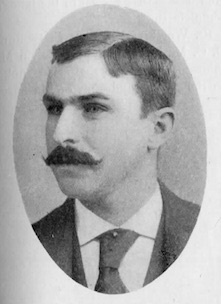
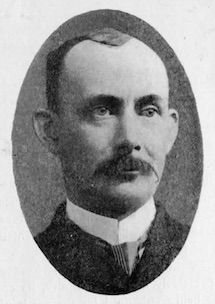
Edward L. Burgess, Wor. Master; John W. Churchill, Treasurer 19 Years
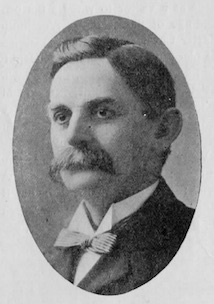
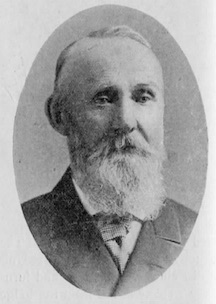
Horace M. Saunders, Marshal 27 Years; Larned S. B. Barrows, Tyler 30 Years
Monday evening, Jan. 29, was a notable one in the annals of Plymouth Lodge, A. F. and A. M., of Plymouth, Mass., for it held the first public installation of its officers which has occurred in a period of 17 years. The ceremony took place in the First Universalist Church. The altar and furnishings were removed from the lodge room to the church, which was converted into a proper lodge room with the stations in the east, the west and the south, and the altar in the center.
At 8 o'clock, after a half-hour's organ recital by N. Reeves Jackson, the Members marched in and were seated. Worshipful Master Charles H. Sherman welcomed the guests and then Received Right Worshipful Everett C. Benton, Deputy Grand Master, and suite, a special feature of the occasion being the presence of Most Worshipful John Albert Blake, Grand Master of Masons in Massachusetts, who came as a visitor to witness the proceedings of the evening. Worshipful Master Charles H. Sherman resigned his place to Right Worshipful Deputy Grand Master Everett C. Benton, who assisted by Worshipful Melvin M. Johnson, Grand Marshal, and Rev. John Cuckson as Grand Chaplain, inducted to office the following: Worshipful master, Edward Leland Burgess; Senior Warden, Harvey A. Soule; Junior Warden, William R. Morton; Worshipful John W. Churchill, Treasurer; Henry W. Barnes, Secretary; Worshipful Horace M. Saunders, Marshal; George L. Gooding, Senior Deacon; Waldo Hayward, Junior Deacon; Oliver L. Edes, Senior Steward; Karl W. Gooding, Junior Steward; Albert L. Chandler, Inside Sentinel; N. Reeves Jackson, Organist: Larned S. B. Harrows, Tyler. The last named was installed in his position for the 30th consecutive year, while the occasion was the 19th successive time John W. Churchill was made Treasurer, and it was the 27th time Horace M. Saunders had been installed as Marshal, facts which were commented on by the installing officer.
The entire ceremony was performed impressively and with dignity, its effect being enhanced by the work of the organist, N. Reeves Jackson, and the admirable responses sung by the Masonic quartet, composed of John A. Beever, Robert A. Brown, Walter H. Brown and George V. Bennett.
Worshipful Master Edward L Burgess conveyed the thanks of the lodge to the officers of the grand lodge and asked Most Worshipful Grand Master Blake to address the gathering. He complied and after a few remarks of a congratulatory character turned to retiring Worshipful Master Sherman and invested him with a handsome gold past master's jewel to the latter's complete surprise.
Rt. Worshipful Everett C. Benton. D. G. M., and Worshipful Melvin M. Johnson, grand marshal, also spoke on the subject and aims of Masonry, their remarks being brief but of excellent thought and delivery. After the close of the meeting a collation was served.
INSTALLATION, JANUARY 1916
From New England Craftsman, Vol. XI, No. 4, January 1916, Page 132:
Plymouth Lodge, Plymouth, Mass., held a special communication Monday January 10, for the the purpose of installing the officers of the Lodge. It was an occasion of unusual interest. The ceremonial was opened by superb rendition of Gounod's soul stirring Praise Ye the Father sung by the double quartet, members of the lodge, as was also the organist. Then came the installation, conducted by the senior Past Worshipful Master of the Lodge, Charles I. Litchfield, who, taking the Oriental chair in 1874, only four years after receiving his Master Mason's degree, ruled and governed the Lodge with exceptional credit and efficiency for a period of eight years, breaking the continuity but for the single year of 1877. This lapse was to permit accession to the honors of the East, to his valued personal friend, Bro. Horace M. Saunders, who had entered Masonry with him in 1870, and been successively advanced to each office as W. Bro. Litchfield was promoted.
This was the 23d time that the installation service has been performed for the lodge by Wor. Bro. Litchfield, who, ranking high in other bodies of both the York and Scottish rites of Masonry, was on this occasion addressed as Past Senior Grand Warden of the M. W. Grand Lodge of Massachusetts. He was assisted, as heretofore on every occasion, by Wor. Bro Horace M. Saunders, acting as marshall, a position which for many years he admirably filled for the lodge after serving as its worshipful master. The beautiful and appropriate language of the ritual was adhered to in full, including the ancient charges, and, at the end Wor. Bro. Litchfield feelingly reviewed his long association with the lodge, and lovingly alluded to some of the older members who have travelled with him from the southern to the western gate, and now face toward the eastern portal opening outward to the realm of light.
The officers installed were: Milo C. Dodge, W. M.; Frank H. Carver, S. W.; Edward C. Holmes, J. W.; W John W. Churchill, Treas.; Albert A. Saunders, Secy.; Rev. Arthur B. Whitney, Chaplain; W. Edward L. Burgess, Marshal; F. Russell Adams, S. D.; Henry W. Royal, J. D.; Clinton T. Keith, S. S.; Harold J. Weston, J. S.; Knowlton B. Holmes, I. S.; N. Reeves Jackson, organist; William J. Macomber, Tyler.
Presiding Master Dodge made a brief address, thanking all who had taken part in making the communication so harmonious, pleasing and successful, and then closed the lodge in full Masonic form; after which refreshments were served.
GRAND MASTER VISIT, MAY 1916
From New England Craftsman, Vol. XI, No. 9, June 1916, Page 302:
The brethren of Plymouth Lodge, Plymouth, Mass., will long remember May 22d as the date of one of the most notable meetings in the Lodge's long career. In addition to a large attendance of members and brethren from nearby towns, the Lodge had an opportunity to welcome Grand Master Melvin M. Johnson, who was accompanied by a suite composed of Wor. William M. Farrington, Grand Marshal; Rt. Wor. Frederick W. Hamilton, Grand Secretary and Rt. Wor. Charles W. Peare, D. D. G. M. of the 27th Masonic District. Entry was made in due form at eight o'clock, the escort consisting of the Past Masters of Plymouth Lodge, with the elder Brothers Doten and Collingwood added. The introduction was by Wor. Past Master Charles I. Litchfield.
The Grand Master was cordially welcomed by Wor. Master Milo C. Dodge, and invited to occupy the Oriental Chair, which he did for a moment, then resigning, the Lodge proceeded with the work. An address by Grand Master Johnson, followed the work. It was listened to with pleased and absorbing interest, detailing as it did, the inception of secret societies and brotherhood of man among nomadic tribes, even before the institution of religions of any kind, and coming down through the Egyptian Mysteries, and later guilds of craftsmen, until first, operative, and then speculative Masonry became established as we know it now from its records and organizations. Duly constituted Masonry he said was introduced in America by Henry Price, who became the first Grand Master of the Most Worshipful Grand Lodge of Massachusetts in 1733, and all regular American Masonry should be considered to date from that year. As one of the memorials to the founder of Masonry in America, the Grand Lodge of Massachusetts prepared a medal of honor, which it was his privilege to bestow upon veteran brothers of the Fraternity who had served the cause of Masonry in their respective lodges for fifty years, and upwards He then asked that Brothers Chas. C. Doten and James B. Collingwood be presented before him in the East. With commendation of their long service, and devotion to the grand principles of Masonic brotherhood, he pinned to their breasts the "Honor Medal of Masonry," and wished them most cordially a long continuance and enjoyment of life and fraternal relations. The Lodge itself felt honored in the distinction thus conferred on those who had "borne the heat and burden of the day," and applauded most heartily this gracious act and the kindly words of the Most Worshipful Grand Master. (Brother Doten was made a Master Mason, Aug. 25, 185(5, and Brother Collingwood, Aug. 14, 1863.)
The conclusion of the Grand Master's address was a most eloquent language portrayal of the true significance of Masonry, it beauty, dignity, and influences for good as related to human lives, showing that in all ages belief in God had been the insisten foundational idea, and teaching of morality and belief in immortality, through most impressive symbolism and precept, had contributed largely to the harmony and happiness of mankind.
A few less than two hundred sat down to the banquet in Grand Army Hall, when after the good things were put away, Wor. Past Master Chas. I. Litchfield presided most acceptably as master of ceremonies and pleasantly introduced the various speakers. The list included Grand Master Johnson, Grand Secretary Hamilton, Grand Marshal Farrington, Rev. Brother Arthur B. Whitney, chaplain of Plymouth Lodge; District Deputy Peare of the 27th District; and Rev. Brother W. W. Dornan of Whitman, who still retains his membership in Plymouth Lodge. From all these came good elevating sentiment, varied with many new illustrative anecdotes and humorous stories, and this social season was so thoroughly enjoyed, that it was half past the midnight hour when all rose and sang the parting song of Auld Lang Syne.
Since the Lodge was instituted in 1825, it has received but three previous visitations from Grand Masters.
INSTALLATION AND PRESENTATION, APRIL 1917
From New England Craftsman, Vol. XII, No. 9, June 1917, Page 311:
The regular communication of Plymouth Lodge, Plymouth, Mass., Monday, April 30, Was an occasion of unusual interest. The events of the evening included a flag presentation, installation of officers of the lodge and presentation of a master's jewel.
The honor of presenting the flag was assigned to Brother Charles C. Doten, a veteran of the Civil War who spoke in part as follows:
"I am vividly reminded of the associations of this hall with the days of '61, when our citizen-soldiers were so suddenly called to the Country's defense, in fratricidal war.
"Here was located the armory of the Standish Guards, which company I then commanded. Along this eastern wall was the gun-rack, and above, where now is displayed that meaningful letter 'G' — standing upon a semblance of Plymouth Rock, was a large golden eagle, grasping in his talons the crossed staves of two American flags.
"From beneath that symbol of our Nation, the 'Minute Men of Plymouth,' on that fateful morning of April 16, 1861, as I gave the command, 'Take Arms! Fall in!' seized their muskets and formed their line on the south side of the hall, and thence filed through double doors in the West, (where now sits our Senior Warden) down the stairs, and marched away to the war, while the flag floating from the staff above the building, was by my order left flying until we should return from service.
"My heart thrills as I recall the scene, and you may be sure, Worshipful Sir, that it is with most loyal pride, both in my Country and Masonry, that after an interval of 56 years, I have now been permitted to bear this silken banner — emblematic of freedom and hope to the oppressed of all the world — to an abiding-place within these walls, worthy of the Nation and our loyal hearts."
The introduction and presentation of the flag was accompanied by singing of The Star Spangled Banner and America.
The master of the lodge accepted the flag with words of cordial thanks and patriotic sentiment.
After a short interval the installation ceremonies were conducted by Rt. Wor. Chas. I. Litchfield, Past Senior Grand Warden of the Grand Lodge of Massachusetts and Past Master of Plymouth Lodge. This was the 25th time he had performed such service for this Masonic body for which he devoted earnest and sacrificing effort during six years of administration, bringing it to the highest standard of efficiency, and in which to the present moment he has ever held unabated interest.
Wor. Horace M. Saunders, another Past Master of the lodge, was acting Grand Marshal for the installation.
At the conclusion of the installation a handsome past master's jewel was presented to Worshipful Master Milo C. Dodge, the presentation words being very happily expressed by Rt. Wor. Bro. Litchfield.
When he concluded, the quartet which had ir.troduced responsive music in the ceremonials, sang "Keller's American Hymn" with fine effect as a finale, and the Lodge was closed. The brethren remained, however, for a season of refreshment.
Officers for 1917 are: Worshipful Master, Wor. Bro. Milo C. Dodge; Senior Warden, Bro. Frank H. Carver; Junior Warden, Bro. Edward C. Holmes; Treasurer, Wor. Bro. John W. Churchill; Secretary, Bro. Albert A. Saunders; Chaplain, Bro. Rev. Arthur B. Whitney; Marshal, Wor. Bro. Edward L. Burgess; Senior Deacon, Bro. F. Russell Adams; Junior Deacon, Bro. Henry W. Royal; Senior Steward. Bro. Harold J. Weston; Junior Steward, Bro. Knowlton B. Holmes; Inside Sentinel, Bro. Emery St. George; Organist, Bro. N. Reeves Jackson; Tyler, Bro. William J. Macomber.
PILGRIM TERCENTENARY, DECEMBER 1920
From New England Craftsman, Vol. XVI, No. 4, January 1921, Page 112:
The 1240th special communication of Plymouth Lodge, Wor. Edward C. Holmes Master, was held Sunday afternoon, Dec. 19, 1920.
After opening the lodge and receiving Rt. Wor. Brother West, Senior Grand Warden of the Grand Lodge, and officers of the Grand Lodge, who accompanied him, a procession was formed and the lodge proceeded to the Old Colony Theatre for the purpose of observing the 300th anniversary of the landing of the Pilgrims, by appropriate exercises.
The stage, on which was seated the guests of the lodge, with officers and Past Masters of Plymouth Lodge, was very tastily decorated.
Music was furnished by an orchestra of 14, all of whom were members of the fraternity. Vocal music, by the Weber Male Quartette of Boston, and several numbers appropriate to the occasion were sung by the audience.
The anniversary address was delivered by M. W. Melvin M. Johnson, 33°, S.G.I.G. Mention of the speaker is assurance enough to all Massachusetts Masons, that the address was worth listening to and worthy of the occasion, and it was most enthusiastically received by the thousand people present. Tickets had been given to all members as well as to Eastern Star members, that relatives of the brethren might enjoy the treat.
Bro. Johnson in the course of his remarks stated that while not claiming any of our Pilgrim Fathers as members of our fraternity, the principles which brought them here and which were embodied in their Compact and Constitution, find their parallel in the principles and teachings of the fraternity. It was along these lines that the speaker made the largest part of his address.
At the conclusion of the exercises in the theatre, the lodge returned to the lodge-room, after which the grand officers were escorted to the Samoset House, where, attended by the officers and Past Masters of the lodge, a luncheon was served, thus ending one of the most enjoyable events ever held by Plymouth Lodge.
The complete program of this very interesting event, for the report of which we are indebted to Wor. Brother Frank H. Carver, a past master of Plymouth Lodge, whose interest and activity is unbounded, is printed beneath in full:
Program
March — Boston Commandery, T. M. Carter
Orchestra Invocation — Bro. Rev. Arthur Bryant Whitney
Overture — Banditenstreiche – Suppe Orchestra
The Lord is My Strength – Simper Quartette
Hymn — The Winds and Waves Were Roaring – John Pierpont (Tune Webb)
Address — M. W. Melvin Maynard Johnson, 33° S.G.I.G.
Arise, Shine, For Thy Light Has Come – Quartette Nevin
Grand Selection from Der Freyschutz – Orchestra Weber
Hymn — The Mayflower Still Is Sailing On! – Allen Eastman Cross (Tune Duke Street)
He Leadeth Me – Davison; Quartette
Minuet – Paderewski
Orchestra Hymn — America – Weber Quartette; Masonic Orchestra, G. Herbert Clarke, Conductor
The organization of Plymouth Lodge, A. F. & A. M. for 1920 is as follows:
- Worshipful Master, Wor. Edward C. Holmes
- Senior Warden, Bro. F. Russell Adams
- Junior Warden, Bro. Henry W. Royal
- Treasurer, Wor. John W. Churchill
- Secretary, Wor. Frank C. Smith
- Chaplain, Bro. Rev. Arthur B. Whitney
- Marshal, Wor. Edward L. Burgess
- Senior Deacon, Bro. Harold J. Weston
- Junior Deacon, Bro. Knowlton B. Holmes
- Senior Steward, Bro. Wilfrid O. Broadbent
- Junior Steward, Bro. William H. Beever
- Inside Sentinel, Bro. Harry T. Bennett
- Organist, Bro. N. Reeves Jackson
- Tyler, Bro. Harry H. Morton
GRAND MASTER VISIT, JUNE 1922
From New England Craftsman, Vol. XVII, No. 9, July 1922, Page 293:
Plymouth Lodge, A. F. & A. M., held a special meeting on Tuesday evening, June 26, at which time M. W. Arthur D. Prince, Grand Master of Masons in Massachusetts, made a fraternal visit to the lodge.
The Grand Master was accompanied by Rt. Wor. Olin D. Dickerman, Senior Grand wWrden; Rt. Wor. F. W. Hamilton, Grand Secretary; Rt. Wor. G. A. Ramsay, Grand Treasurer; Rt. Wor. F. W. Dobson, Grand Marshal; Rt. Wor Winthrop G. Cushing, Grand Steward; Rt. Wor. R. G. Allen, and Rt. Wor. E. A. Baker, District Deputy Grand Masters.
The Grand Master and his suite were escorted into the lodge room by a committee of past masters of Plymouth Lodge, with Wor. Bro. Horace M. Saunders as chairman.
Mention was made that by a singular coincidence it was just 51 years ago that night that Bro. Saunders was initiated in Plymouth Lodge.
After being received, the Grand Master assuming the East, expressed the pleasure he felt at his reception and then, at the request of the Worshipful Master, installed Bro. N. Reeves Jackson as organist, remarking that he understood it was the 34th year that Bro. Jackson had served in that capacity, which he considered a remarkable record.
The Grand Master then resigned the chair to Wor. Bro. Adams, who then called upon the past District Deputies of the 27th District to fill the offices of the lodge and confer the last degree upon the candidates for the evening, which work was performed to the satisfaction of all present.
That the event was of note and of interest to the whole district, was evidenced by the attendance of members, not only from all lodges in the district, but from adjoining districts, about 275 members of the fraternity being present.
At the close of the work the Grand Master, in his usual easy and pleasing manner, gave a short address, which was closely followed and enjoyed by all present.
The grand officers were the special guests of Wor. Bro. Adams, being entertained by him at his home in Kingston.
CENTENARY CELEBRATION, SEPTEMBER 1925
From New England Craftsman, Vol. XX, No. 12, October 1925, Page 463:
Plymouth Lodge, A. F. and A. M., ended its three-day celebration of the 100th anniversary of organization with ladies' night at the Plymouth Cordage Hospitality building, Plymouth, Mass, Tuesday evening, September 15.
At the banquet Most Worshipful Dudley H. Ferrell, Grand Master of Massachusetts, and suite were present and other guests were Congressman Bro. Charles L. Gifford, Secretary of State Bro. Frederic W. Cook of Somerville and former Councillor Bro. Harry H. Williams of Brockton.
Bro. James B. Collingwood, who is 96 years old and has been a member of the lodge for 60 years, was also present.
CORNERSTONE CEREMONY, OCTOBER 2004
From TROWEL, Winter/Spring 2005, Page 26:
Plymouth Lodge in Cornerstone Ceremony for Deeds Building
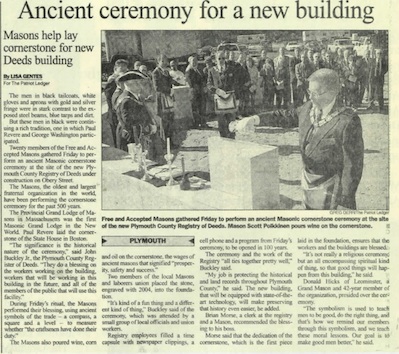
In October, the Grand Master and other Grand Lodge officers joined with Plymouth Lodge in laying the cornerstone for the new Plymouth County Registry of Deeds. The public event was covered by a good article in the Patriot Ledger.
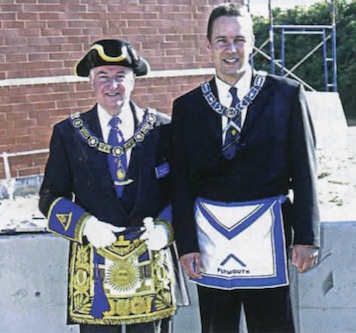
Most Wor. Donald Gardiner Hicks, Jr., and Wor. James J. Bennette, Master of Plymouth Lodge.
GRAND LODGE OFFICERS
- Leon T. Ashley, DDGM, District 27 (Plymouth), 1988, 1989; SN
- Emmett B. Baker, DDGM, District 27 (Plymouth), 1974, 1975
- Harold W. Baker, DDGM, District 27 (Plymouth), 1956, 1957; Memorial
- Charles I. Litchfield, DDGM, District 25 (Hingham), 1889; Junior Grand Warden 1892
- Dexter L. Gasper, DDGM, District 27 (Plymouth), 1994, 1995; N
- Edward C. Holmes, DDGM, District 27 (Plymouth), 1924, 1925; Junior Grand Warden 1940; N
- Jacob H. Loud, DDGM, District 3, 1830; SN
- Raymond E. Miskelly, DDGM, District 27 (Plymouth), 1944, 1945; N
- Russell W. Nickerson, DDGM, District 27 (Plymouth), 2002; District 18, 2003
- Henry W. Royal, DDGM, District 27 (Plymouth), 1932, 1933; N
- Harvey A. Soule, DDGM, District 27 (Plymouth), 1913, 1914; N
OTHER BROTHERS
- Philander Cobb, Biography
- Bartlett Ellis, Memorial
- Robert B. Hall, Memorial
- Luther May, Memorial
- Eastman Sanborn, Memorial
- Horace M. Saunders, Memorial
